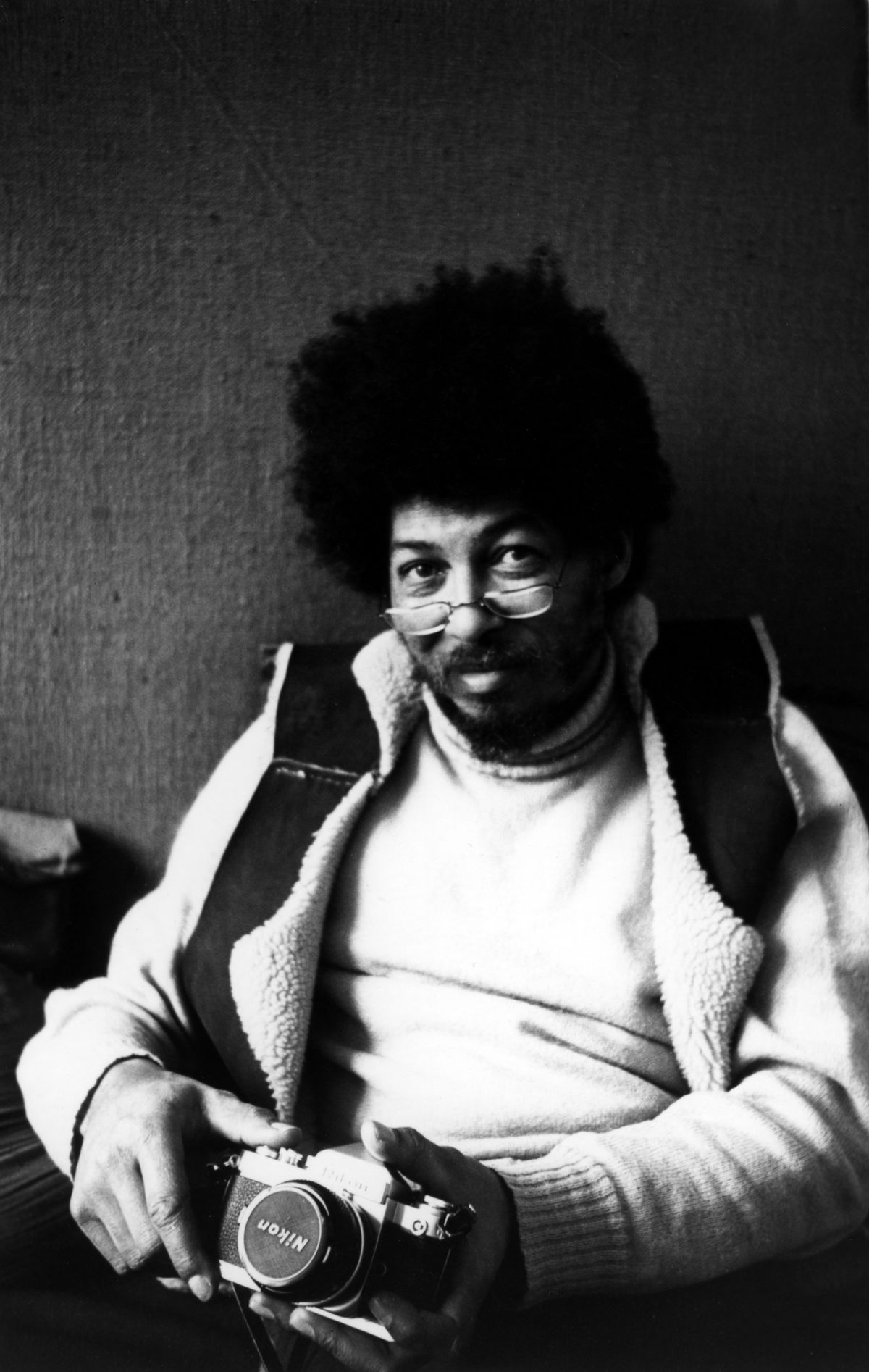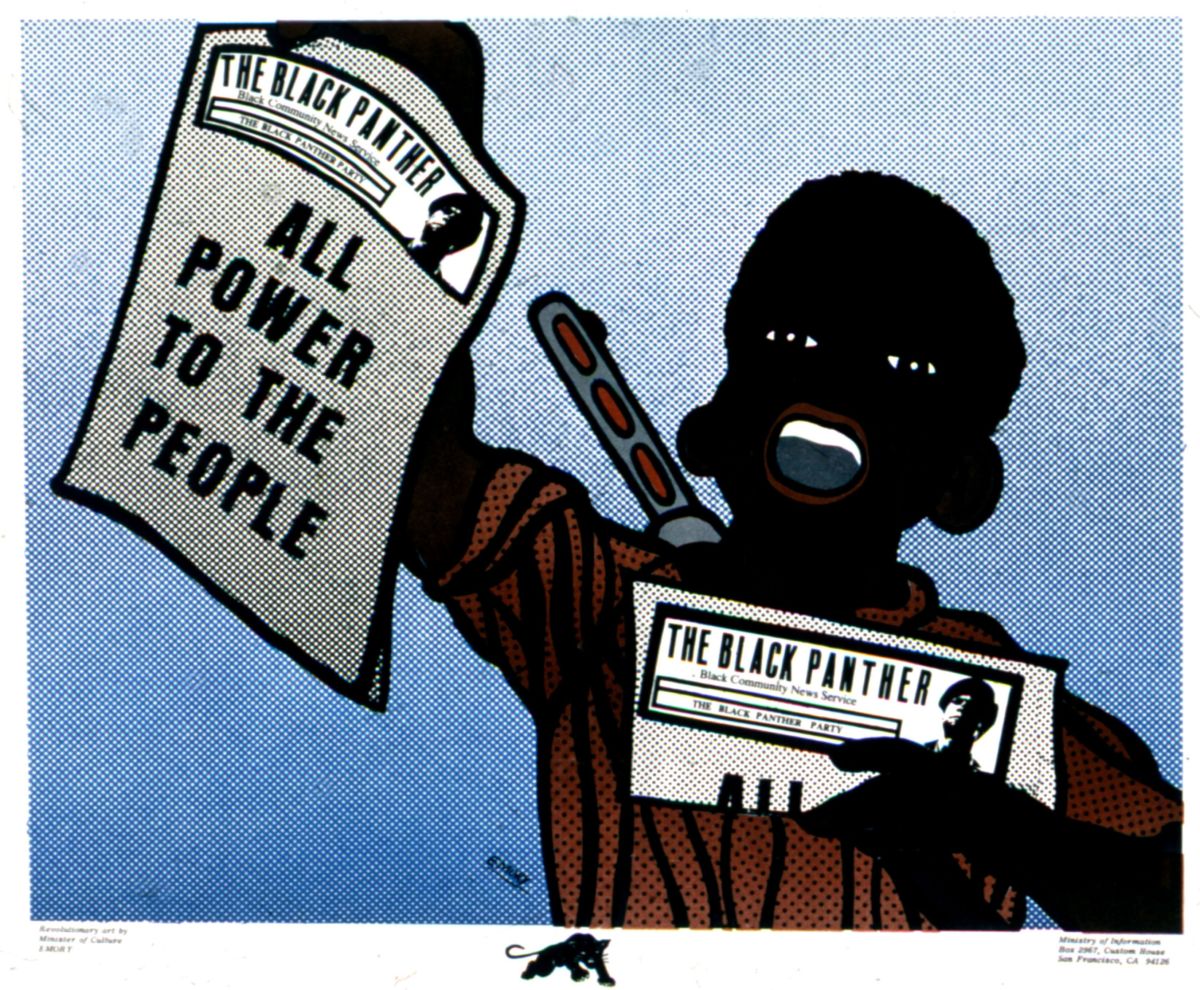Support justice-driven, accurate and transparent news — make a quick donation to Truthout today!
The next day I arrived at Hunter’s Point at seven in the morning, in order to get set up before people began to gather. There wasn’t going to be any target practice, but I would be firing a few shots into the air by way of demonstration. I knew that would pose no problem as far as the police were concerned; due to their racism, whenever they heard shots on the Point, they generally looked the other way. Once, during a dispute between two gangs, shooting broke out and instead of the police coming in to break it up, they sealed off the area and let them shoot it out. The gun battle lasted twenty-four hours and the police didn’t return until the next day.
At around eight o’clock I saw [the Black Panther Party’s chief of staff] David Hilliard’s car driving up, which I found surprising because we had only seen each other a couple of times before. As the car approached, I recognized Emory Douglas and George Murray. Everyone had strange looks on their faces that made it clear something was wrong. Damn! Huey [Newton, the Party’s cofounder] had been shot and captured! He had shown up at David’s, wounded and bleeding heavily. There was real concern for his life, so David drove him to the hospital and left him on the steps, then drove straight to San Francisco to find me. He said Huey had asked him to ask me to help out with the aftermath—specifically dealing with the passenger who had been in Huey’s car at the time of the shootout with Officer John Frey of the Oakland Police, who’d been killed. There was also the problem of the guns Huey had stockpiled. I’ll never understand why David didn’t just bring the guns with him, but he hadn’t, and I was obliged to go back into the area, get everything, and get back out, safely. That might sound easy, but the shootout had occurred less than three hours before and there was one policeman dead and one seriously wounded. So, it was hot over in Oakland, to say the least.
There was no time to go by the house and unload the guns I had on hand for the training, so I followed David back to Oakland with a trunk full of weapons.
David took me into the backyard of a house that had a lot of weeds and a stack of old lumber in which he had stashed the gun. In his state of excitement he couldn’t remember exactly where the pistol was, and while we were looking, an elderly black woman came out of the house next door and asked what we were doing. David kept searching and didn’t look up. She then said, “If you don’t come out of there I’m going to call the police.” I began to panic and told David to say something to the woman. When he rose up, she recognized him and calmed down. This was David’s house and she was his neighbor. On one hand, I was relieved, but on the other, if the police were looking for the passenger who had been with Huey, it was certain they wouldn’t miss David’s house, as both were known Panthers.
Finally, he found the gun. I took it and told him to get the passenger to a lawyer while I split back to San Francisco. That gun was the hottest thing I had ever had in my hands. It still had that inimitable odor of burnt gunpowder that lingers on a weapon after it has been fired. They say God looks after fools and idiots, and it must be so, as I made it back to San Francisco without incident.
I headed straight to the pad of a girlfriend who wasn’t involved with any political activity in any form or fashion. I wanted to stash the gun at her house, but, bad luck, she wasn’t home. I had recently met a sister named Barbara Easley who seemed cool, and as she lived close by, I went to her house. As soon as she opened the door, she asked if I had heard about Huey. I said yes and asked if I could stash something in her house. She agreed without hesitating, so I pulled out the pistol and stuck it under the water heater up among the pipes. Six months later, when we were moving Barbara’s things to my pad (we had decided to live together), I reached up to make sure that the gun had been removed and was shocked to find the cylinder of the pistol, which also had the serial number of the weapon engraved on it. I didn’t know who was supposed to have been responsible for removing the pistol shortly after it was put there, but all that time I had been staying with Barbara I was certain that it had been removed. That was my first real lesson in not depending on others, and I felt stupid that I had been confident enough to not even look to verify that it had been removed. To this day, I wonder whether or not that was incompetence or sabotage.
We all spent the day of the shooting practically in mourning. With one policeman dead, one seriously wounded, and Huey in their hands, we were all thinking the same thing, even though no one said it out loud: the gas chamber at San Quentin Prison. And that was if they didn’t just kill him outright in the hospital.
A meeting was called at Emory’s house to discuss Huey’s case. There were no more than ten people, and we all agreed that we couldn’t let Huey be sent to the gas chamber. The necessary machinery would have to be built to prevent it, and soon the Huey P. Newton Defense Committee was formed. It was at this same meeting that I first met Eldridge Cleaver. He was beginning to make contact with all of the political factions and tendencies in the Bay Area at that time. I attended a few gatherings, but some of the meetings got heated, with the various sides arguing over things that seemed, to me, to have no importance. I quickly grew frustrated and returned to our San Francisco group.

As for Huey, we knew we had to do something, quick. They had killed Malcolm, Che, Patrice Lumumba, and Mehdi Ben Barka, the Algerian leader, and now they were trying to kill Huey. We had to return blow for blow. From now on it was going to be an eye for an eye and a tooth for a tooth.
Just Another Nigger: My Life in the Black Panther Party, by Don Cox. Copyright © 2019 by Kimberly Cox Marshall and published by Heyday. All rights reserved.
Press freedom is under attack
As Trump cracks down on political speech, independent media is increasingly necessary.
Truthout produces reporting you won’t see in the mainstream: journalism from the frontlines of global conflict, interviews with grassroots movement leaders, high-quality legal analysis and more.
Our work is possible thanks to reader support. Help Truthout catalyze change and social justice — make a tax-deductible monthly or one-time donation today.
